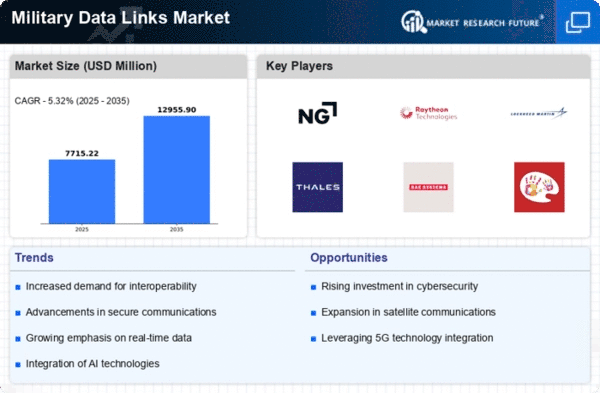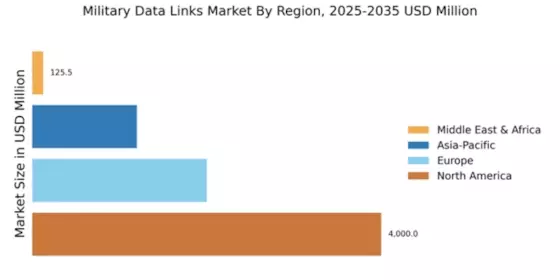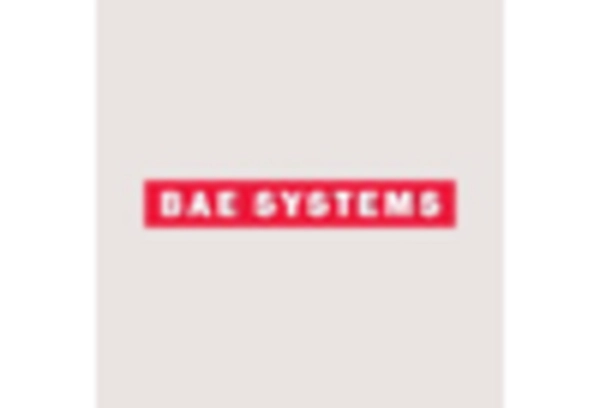Increased Defense Budgets
Many nations are augmenting their defense budgets, which significantly impacts the Global Military Data Links Market Industry. Countries are investing in advanced military technologies, including data links, to enhance their operational capabilities. For instance, the United States and NATO allies are prioritizing the modernization of their communication systems to ensure effective coordination during joint missions. This trend is expected to drive the market's growth, with projections indicating a rise to 12.9 USD Billion by 2035. The increased funding for defense initiatives suggests a sustained commitment to improving military readiness through advanced data link technologies.
Technological Advancements
The Global Military Data Links Market Industry is experiencing rapid technological advancements that enhance communication capabilities among military platforms. Innovations in data link technologies, such as Link 16 and Multifunctional Information Distribution System, are enabling real-time data sharing and situational awareness. These advancements are crucial for joint operations and interoperability among allied forces. As military forces increasingly adopt advanced data link systems, the market is projected to reach 7.33 USD Billion in 2024, reflecting a growing demand for sophisticated communication solutions that support modern warfare tactics.
Expansion of Unmanned Systems
The expansion of unmanned systems, including drones and autonomous vehicles, is significantly influencing the Global Military Data Links Market Industry. These systems rely heavily on robust data link technologies for command and control, as well as for real-time data transmission. The increasing deployment of unmanned aerial vehicles (UAVs) in military operations necessitates advanced data link solutions to ensure effective communication and operational efficiency. As the market adapts to the growing presence of unmanned systems, it is poised for substantial growth, further contributing to the projected increase to 12.9 USD Billion by 2035.
Growing Demand for Interoperability
The need for interoperability among allied forces is a key driver in the Global Military Data Links Market Industry. As military operations become more joint and coalition-based, the ability to share information seamlessly across different platforms is paramount. Data links facilitate this interoperability, allowing various systems to communicate effectively. This demand is underscored by initiatives such as the NATO Communications and Information Agency's efforts to standardize data link protocols. The market is expected to grow at a CAGR of 5.31% from 2025 to 2035, reflecting the increasing emphasis on collaborative military operations.
Emerging Threats and Cybersecurity Concerns
The rise of emerging threats and cybersecurity concerns is shaping the Global Military Data Links Market Industry. As military operations become more digitized, the potential for cyberattacks on communication systems increases. Consequently, there is a pressing need for secure and resilient data link solutions that can withstand such threats. Governments are investing in advanced encryption technologies and secure communication protocols to protect sensitive information. This focus on cybersecurity is likely to drive market growth as military organizations seek to safeguard their data link systems against evolving cyber threats.

















